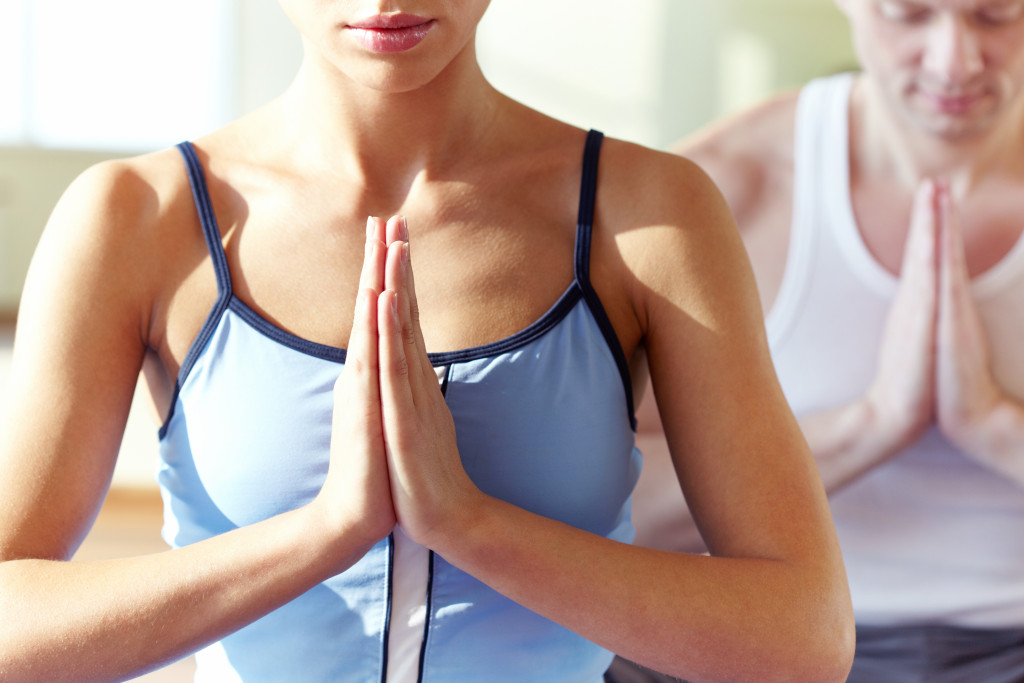Mental and physical health are more related than you think. While there’s definitely a difference between them and how each of them is viewed or treated by everyone, mental and physical health are strongly connected and can affect each other in plenty of ways. A person’s physical health can affect their cognitive view of themselves and general outlook. At the same time, the detrimental effects of mental illness can be seen in how a person treats their physical health.
Whatever the case, you can’t have a sound mind and body without both your physical and mental health working together in harmony. So what are some ways that keeping up your physical health can help your mental health?
Exercise
We don’t think we need to tell you why exercise is good for your physical health. It turns out that exercising can help your mental health as well. If you’ve ever seen a mental health professional or been diagnosed with depression and anxiety, then they’ve probably been recommended exercise as a means to keep the bad brain chemicals at bay. Exercise does help to decrease the symptoms of depression. It releases endorphins in your brain, relieves stress, and allows you to focus on something other than your thoughts.
Moving your body, even if it’s just taking a leisurely walk around the neighborhood, is one way to distract yourself from your depression or anxiety and helps to ground you in reality through mindfulness in case you suffer from any dissociative symptoms. As a bonus, if you have insomnia (a common symptom of depression), tiring yourself out with a bit of exercise can help you sleep better at night and make for a more restful sleep.
It can be challenging to get yourself to be active when you’re going through a depressive episode, but if you keep up a routine long enough, you’ll find yourself doing it without even needing to force it. If you’ve been looking for an excuse to start working out more regularly, here’s the sign you’ve been looking for.
Meditation

Meditation is another way you can improve both your physical and mental health. Unlike exercise, meditation requires little to no physical exertion on your part. All you need is a quiet space, some time to yourself, and a handy meditation guide. Meditation has been proven to reduce stress and anxiety levels, improve cognitive functions like memory and attention span, and promote mindfulness and inner peace.
Try it out yourself! Find a good meditation podcast or video and spend thirty minutes to an hour meditating whenever you start to feel your thoughts straying to bad places. It’s one way to avoid falling into self-destructive patterns and center your mind and body.
Diet
Lack of appetite is a common symptom of depression and one that many people often take for granted. At the same time, stress eating and overeating can also be caused by depression and anxiety. Your physical health isn’t the only thing that’ll benefit from a proper diet. Eating healthily can affect your mood and reduce stress and anxiety levels. Even when you don’t feel like eating anything, you should still have a full meal at least twice a day, if not more. Eating and feeling full is often associated with happiness and contentment, and although your lack of appetite might not think so, it does help to get something in your stomach, like a portion of comfort food.
Rest and Relaxation
Different people find different ways to cope with their depression. Others become workaholics and throw themselves into their work, while others express themselves through art or in some other hobby. One common way to cope with any mental health problems is to rest. Seriously. Just rest.
Mental health breaks are entirely valid and shouldn’t be taken for granted. After all, when you’re physically tired, you don’t try to push yourself to do more than you’re capable of doing. The same can be said of mental health. If your cognitive capabilities are hitting a breaking point, it’s best to step back and take a break till you feel better.
Relaxing activities, such as indulging in a hobby, getting massages to relieve back pain, or just lazing around and doing nothing, can significantly improve your mental and physical health. These activities give you just the right kind of recovery to make sure that you’re feeling better and ready to take on the world afterward. Remember that it’s good to be hardworking, but it’s okay to take a break every now and again, especially if you don’t feel entirely okay.
Final Thoughts
Your physical and mental health aren’t two different parts of you that don’t directly affect each other. They’re both equally important, and both need to be maintained to help the other. Frequently, the things you do to treat your physical health can also affect your mental health, and vice versa. Remember these tips the next time you’re feeling down and do yourself a favor by striving to do better. Last but not least, don’t be afraid to seek professional help if you feel like you need it. There will always be someone willing to listen and to help you.

